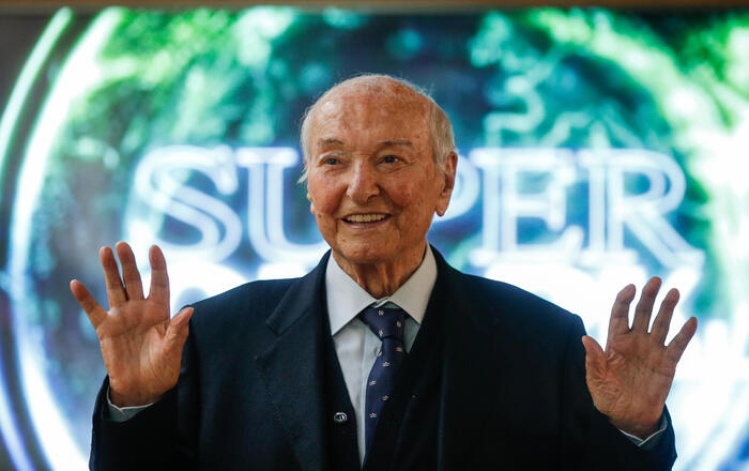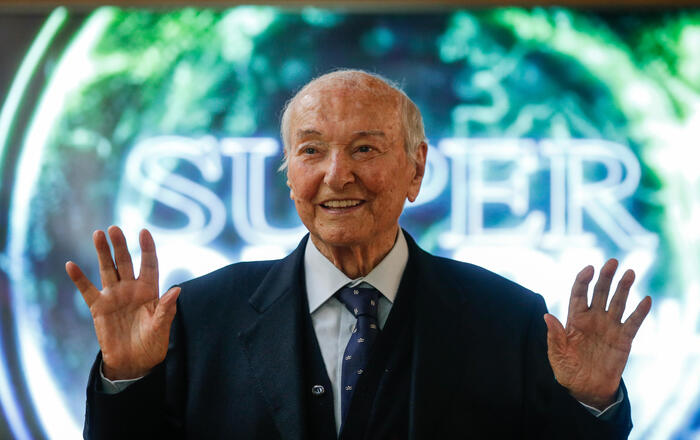“In a simple and hopefully not boring way, we will address the problems facing humanity, related to climate change and the search for new energy sources, but also, the role of science and technology in modern society.”
These words from Piero Angela open his final season of SuperQuark, the last project he worked on toward the end of his life. ‘Preparing for the Future’ arrives on Rai3 from October 14, and will screen every Friday at 3pm, a time Angela himself decided on.
This is a season that Angela particularly cared about, and that he designed especially for schools. Rai produced this 16-episode cycle with Carlo Fuortes and Silvia Calandrelli, director of Rai Cultura and Educational.
“He was unique to this world, Rai will be forever grateful to him. He is leaving this program, ‘Prepararsi al futuro’, which is his testament. He was still thinking about the future at the age of 93, he is an example for all of us. It is an extraordinary legacy he’s leaving to television, and a unique example of devotion to public service,” said Fuortes.
Opening the series of episodes, Piero Angela, who died on August 13, announced:
“We will talk about the fundamental role of science and technology in modern society. It will be a discussion with you, in which I will try to tell you some of the things that I have learnt over all these years. This is the studio with the original furnishings of Superquark. And there will be cartoons by Bruno Bozzetto that will pick up on the topics discussed.”
Among the topics will be the melting of glaciers, geothermal energy, nuclear fusion, wind power, photovoltaics, energy saving, both active and passive, energy consumed using the Internet, other types of pollution and pressure on the environment.
Angela recounts:
“I went to classical high school many years ago, and much of the syllabus was devoted to studying the past. There were also scientific subjects, but perhaps I was unlucky, I did not have teachers who made me love science: they were boring, pedantic, not very engaging.
“I realised this later, thanks to my work as a journalist, which helped me understand how some things had not been taught to me, for example the method of science, rules, ethics, the pleasure of discovery, the philosophy of knowledge. At that point I started reading books, magazines and making science and technology programs. If I have told you this personal story, it is because I wondered how important it would be for you young people to approach science and technology in a way that is constantly changing.”
The main objective of the project is to include food for thought on the importance of scientific culture in a modern society, and especially Italian society, in the school curricula of the last three years of secondary school.











